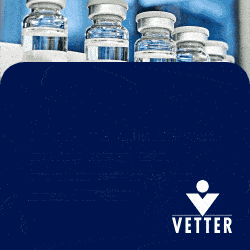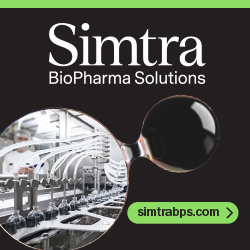Cara Therapeutics Announces Initiation of Phase 2 Trial of Oral KORSUVA
Cara Therapeutics, Inc. recently announced the initiation of a Phase 2 trial of Oral KORSUVA (CR845/difelikefalin) for the treatment of pruritus in patients with hepatic impairment due to primary biliary cholangitis (PBC). Pruritus is a common symptom of cholestatic liver diseases with a prevalence of up to 70 percent in patients with PBC.
“Pruritus continues to be a significant comorbidity in patients with chronic cholestatic liver diseases and may be exacerbated by certain bile acid-related drugs,” said Derek Chalmers, PhD, DSc, President and Chief Executive Officer of Cara Therapeutics. “We believe that Oral KORSUVA may provide a potential new, first-in-class therapeutic approach to treat this unmet clinical need.”
The Phase 2 multicenter, randomized, double-blind, placebo-controlled 16-week trial is designed to evaluate the safety and efficacy of 1 mg tablet of Oral KORSUVA taken twice daily (BID) versus placebo in approximately 60 patients with PBC and moderate-to-severe pruritus.
The primary efficacy endpoint is the change from baseline in the weekly mean of the daily 24-hour Worst Itch Numeric Rating Scale (WI-NRS) score at Week 16 of the treatment period. Secondary endpoints include change from baseline in itch-related quality of life scores at the end of Week 16 as assessed by the total Skindex-10 and 5-D itch scales, as well as the assessment of proportion of patients achieving an improvement from baseline of ≥3 points with respect to the weekly mean of the daily 24-hour WI-NRS score at week 16.
The dose of Oral KORSUVA (1 mg BID) in the Phase 2 trial is based on comparison to the exposure levels achieved with 0.5 mcg/kg dose of I.V. KORSUVA that exhibited statistically significant and clinically meaningful reduction in itch intensity in hemodialysis patients with moderate-to-severe pruritus in the Phase 2 and 3 trials.
PBC is a rare, chronic, immune-mediated progressive liver disorder that usually appears in middle age and leads to inflammation as well as scarring of the small bile ducts. Pruritus has been commonly reported with varying severity in patients with PBC and contributes to a large symptomatic burden, including reduced quality of life. The underlying pathophysiology of pruritus in patients with liver disease is unclear; bile salts, histamine levels, opioids, serotonin, and female sex hormones have all been implicated as pruritogens. Common pruritus treatments in patients with PBC include bile salt resins, such as cholestyramine, which has several side effects; rifampicin, which requires regular blood tests due to the risk of hepatoxicity and administration for more than two weeks is not recommended; mu-opioid receptor antagonists and sertraline. Despite these and other available therapies, a significant proportion of patients do not respond to treatment.
The US FDA has granted Breakthrough Therapy designation to I.V. CR845 for the treatment of moderate-to-severe pruritus in CKD patients undergoing hemodialysis. Breakthrough Therapy designation is granted to expedite the development and review process for new therapies addressing serious or life-threatening conditions where preliminary clinical evidence indicates that the drug candidate may demonstrate substantial improvement over existing therapies on one or more clinically significant endpoints. There are currently no FDA-approved drugs for the treatment of CKD-aP.
The FDA has conditionally accepted KORSUVA as the trade name for difelikefalin injection. CR845/difelikefalin is an investigational drug product and its safety and efficacy have not been fully evaluated by any regulatory authority.
Cara Therapeutics is a clinical-stage biopharmaceutical company focused on developing and commercializing new chemical entities designed to alleviate pruritus by selectively targeting peripheral kappa opioid receptors (KORs). Cara is developing a novel and proprietary class of product candidates, led by KORSUVA (CR845/difelikefalin), a first-in-class KOR agonist that targets the body’s peripheral nervous system, as well as certain immune cells. In a Phase 3 trial and Phase 2 trials, KORSUVA Injection has demonstrated statistically significant reductions in itch intensity and concomitant improvement in quality of life measures in hemodialysis patients with moderate-to-severe chronic kidney disease-associated pruritus (CKD-aP), and is currently being investigated in additional Phase 3 trials in hemodialysis patients with CKD-aP.
Total Page Views: 1293

















